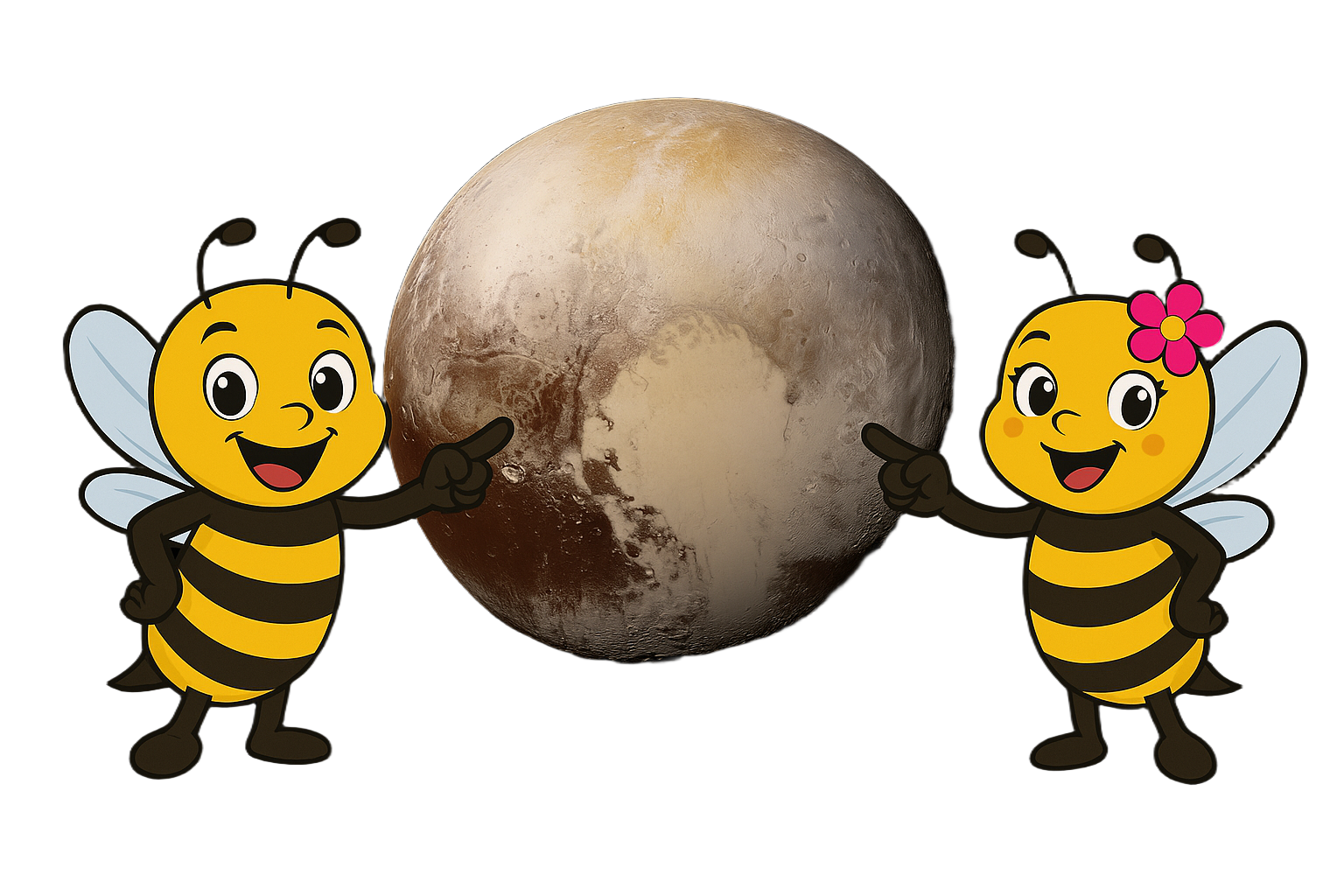
Pluto

The Shadow Alchemist and Planet of Profound Transformation
Pluto, the farthest known planetary body in our solar system, is small, cold, and enigmatic. Though reclassified as a dwarf planet in 2006, Pluto’s influence in astrology remains immense. It governs the deepest layers of the psyche—power, death, rebirth, and the hidden forces that shape our lives. Whether viewed through a scientific lens or a spiritual one, Pluto is the cosmic catalyst for change.
🪐 Pluto in Astronomy: The Dwarf Planet of the Kuiper Belt
Discovered in 1930 by Clyde Tombaugh, Pluto was long considered the ninth planet until its reclassification by the International Astronomical Union. It resides in the Kuiper Belt, a region of icy bodies beyond Neptune, and has a highly elliptical orbit that sometimes brings it closer to the Sun than Neptune.
Key astronomical features of Pluto:
-
Diameter: About 1,476 miles—smaller than Earth’s Moon.
-
Orbital period: 248 Earth years.
-
Moons: Five known moons, including Charon, which is nearly half Pluto’s size.
-
Surface: Composed of rock and ice, with mountains, plains, and possible cryovolcanoes.
-
Atmosphere: Thin and composed mainly of nitrogen, with traces of methane and carbon monoxide.
-
Rotation: A day on Pluto lasts about 6.4 Earth days.
Despite its size, Pluto has a complex and dynamic surface, with evidence of geological activity. Its distant, shadowy presence mirrors its astrological symbolism—hidden, powerful, and transformative.
🔮 Pluto in Astrology: The Planet of Death, Rebirth, and Power
In astrology, Pluto is the ruler of Scorpio and is considered a generational planet due to its slow orbit. It spends 12 to 30 years in each sign, influencing entire generations with themes of transformation, evolution, and psychological depth.
Pluto’s energy is intense, uncompromising, and often uncomfortable. It governs the underworld of the psyche—our fears, obsessions, and the parts of ourselves we must confront to grow. It’s the planet of destruction and regeneration, of endings that lead to new beginnings.
✨ Core Themes of Pluto in Astrology
-
Transformation and Rebirth Pluto is the planet of metamorphosis. It breaks down what no longer serves us—relationships, beliefs, identities—and rebuilds something stronger. It’s the phoenix rising from the ashes.
-
Power and Control Pluto governs power dynamics, control, and manipulation. It reveals where we seek dominance or where we feel powerless. It’s about reclaiming inner strength and facing our shadows.
-
Death and Endings Pluto rules literal and symbolic death—the end of cycles, chapters, and illusions. It teaches us to let go and trust the process of renewal.
-
Psychological Depth Pluto dives into the subconscious, revealing hidden motives, traumas, and desires. It’s associated with therapy, healing, and shadow work.
-
Obsession and Intensity Pluto’s energy is all-or-nothing. It brings intensity, fixation, and the urge to go deep. It’s not content with surface-level answers—it wants truth, no matter how uncomfortable.
🌌 Pluto in the Natal Chart
In a birth chart, Pluto’s sign is shared by many people in the same generation, but its house placement and aspects personalize its influence. It shows where we experience transformation, where we confront power struggles, and where we’re called to evolve.
Examples:
-
Pluto in the 1st house: Intense self-expression, identity transformation, and strong personal presence.
-
Pluto in the 7th house: Deep, transformative relationships; potential for power dynamics in partnerships.
-
Pluto conjunct Moon: Emotional intensity, deep psychological insight, and potential for healing through emotional release.
Pluto’s aspects to personal planets (Sun, Moon, Mercury, Venus, Mars) reveal how its transformative energy interacts with our core traits. These aspects often indicate areas of life where we face profound challenges and growth.
⚖️ The Shadow Side of Pluto
Pluto’s power can be destructive if misused or misunderstood:
-
Manipulation: Using control or secrecy to dominate others.
-
Obsession: Fixation on people, ideas, or outcomes.
-
Fear: Avoiding change or clinging to what’s familiar.
-
Despair: Feeling overwhelmed by loss or transformation.
Astrologers encourage working with Pluto through self-awareness, therapy, and spiritual practices. When embraced, Pluto’s energy leads to empowerment and renewal.
🧭 Pluto Transits and Cycles
Pluto’s transits are slow but profound. When it aspects personal planets, it can trigger life-altering events, psychological breakthroughs, or deep healing.
-
Pluto return: Occurs around age 248—rarely experienced by individuals but significant for nations and institutions.
-
Pluto square Pluto: Happens in midlife (around age 36–42), marking a period of intense personal transformation.
-
Pluto retrograde: Lasts about five months each year, encouraging introspection and inner work.
Pluto transits often coincide with major life shifts—career changes, relationship endings, spiritual awakenings. They’re challenging but ultimately liberating.
🏛️ Mythological Roots: Pluto as God of the Underworld
In Roman mythology, Pluto (Greek: Hades) was the god of the underworld, ruling over death and the hidden realms. He was feared and respected, associated with wealth (from underground resources) and the mysteries of life and death.
Astrologically, Pluto carries this mythic weight. It’s the gatekeeper of transformation, guiding us through darkness to find light. It reminds us that growth often requires surrender—and that true power comes from within.
🌱 Pluto’s Message: Evolve or Be Changed
Pluto’s astrological message is uncompromising: evolve. It urges us to face our fears, release what no longer serves us, and embrace transformation. Pluto asks, “What must die so you can be reborn?” and “Where are you resisting change?”



